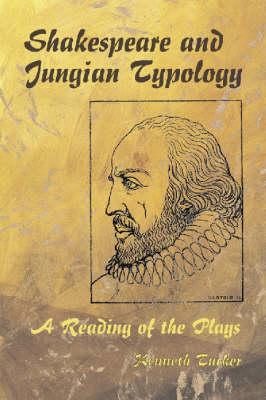Overview
The reader of Shakespeare has always been curious about the Bard's actual religion, opinions, sexual orientation, and relationships. We would like to ask him why his Hamlet is so indecisive, whether Henry V is his ideal ruler, and whether he himself fell in love with Rosalind. The Jungian theories of psychology used in literary interpretation have almost always involved a broader theory of archetypes rather than concentrating on more specific psychological types, despite Jung's belief that an understanding of these types is vital to self-realization. Jung's typological theories, applied to literary studies, may illuminate the personalities of fictional characters and indeed of the author himself. The psychological type of a writer's character can be understood as a projection of the author's own personality: Iago can show Shakespeare's rational function whereas Othello embodies the expression of the dramatist's capacity to experience emotion. Thus Jungian typology initiates a quasi-biographical approach to understanding writers and their works. Instead of directing attention toward an author's education, class prejudices, and so on, it leans toward important emotional undercurrents within the writings, which in turn express similar currents within the author's psyche. Jungian psychetypology is long overdue in gaining recognition as a tool for literary analysis, and this work applies these theories to the full spectrum of Shakespeare's plays in detailed individual readings and comparisons.
Full Product Details
Author: Kenneth Tucker
Publisher: McFarland & Co Inc
Imprint: McFarland & Co Inc
Dimensions:
Width: 15.20cm
, Height: 0.90cm
, Length: 22.90cm
Weight: 0.245kg
ISBN: 9780786416479
ISBN 10: 0786416475
Pages: 175
Publication Date: 07 August 2003
Recommended Age: From 18 years
Audience:
College/higher education
,
General/trade
,
Professional and scholarly
,
Tertiary & Higher Education
,
General
Format: Paperback
Publisher's Status: Active
Availability: Available To Order

We have confirmation that this item is in stock with the supplier. It will be ordered in for you and dispatched immediately.
Reviews
“read and enjoy...this readable monograph will enlighten both teachers and students of Shakespeare...interesting...valuable...useful”—Kentucky Philological Review.`
read and enjoy...this readable monograph will enlighten both teachers and students of Shakespeare...interesting...valuable...useful --<i>Kentucky Philological Review.</i>
read and enjoy...this readable monograph will enlighten both teachers and students of Shakespeare...interesting...valuable...useful --Kentucky Philological Review.`
Author Information
Kenneth Tucker is professor emeritus of English at Murray State University. He has written previously on a variety of literary figures and on the performing arts. He lives in Murray, Kentucky.




